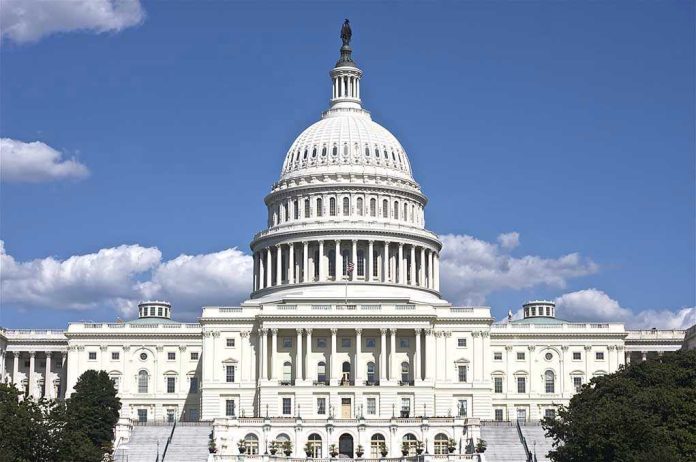
When a political firebrand who built her career on unwavering loyalty suddenly turns against her patron, the response reveals everything about who really holds the power.
Story Highlights
- Marjorie Taylor Greene resigned from Congress effective January 5, 2026, citing feeling “cast aside” by Trump and the MAGA movement
- Her break with Trump originated from disagreements over handling Jeffrey Epstein law enforcement files
- Trump’s measured response demonstrated strategic political discipline in managing defections within his coalition
- Greene accused Trump’s inner circle of being influenced by neoconservatives, Big Pharma, and elite donor classes
The Dramatic Fall From Grace
Marjorie Taylor Greene’s November 22nd resignation announcement sent shockwaves through conservative circles, but not for the reasons you might expect. The Georgia congresswoman, once considered Trump’s most vocal defender in Congress, delivered a scathing indictment that read more like a manifesto than a resignation letter. Her accusation that Trump had abandoned real Americans in favor of “Neocons, Big Pharma, Big Tech, Military Industrial War Complex, foreign leaders, and the elite donor class” represented a complete ideological reversal.
Greene’s metaphor of refusing to be “a battered wife, hoping it all goes away and gets better” crystallized her frustration with what she perceived as Trump’s betrayal. The irony wasn’t lost on political observers that someone who built her brand on absolute loyalty was now wielding that same passion against her former champion.
Trump’s Masterclass in Political Damage Control
Trump’s response to Greene’s resignation demonstrated why he remains the undisputed leader of the conservative movement. Rather than engaging in a public war of words or attempting to defend his decision-making, Trump employed a strategy that political veterans recognize as textbook crisis management. His measured tone avoided giving Greene’s accusations additional oxygen while maintaining his authority within the party.
The brilliance of Trump’s approach lies in its restraint. By not escalating the conflict, he prevented Greene from positioning herself as a martyred truth-teller fighting the establishment. Instead, her resignation appears isolated, the action of someone who couldn’t handle the realities of governing rather than a principled stand against corruption.
The Epstein Files Fracture Point
Greene’s break with Trump centered on the handling of Jeffrey Epstein-related law enforcement files, an issue that has long animated conspiracy-minded segments of the conservative base. Her frustration seemingly stemmed from Trump’s reluctance to pursue what she considered essential transparency measures. This disagreement exposed a fundamental tension between Trump’s pragmatic approach to governance and the absolutist expectations of his most fervent supporters.
The Epstein issue represents exactly the kind of political minefield that requires careful navigation. Trump’s apparent restraint likely reflected advice from legal and political advisors who understand that premature or reckless action could backfire spectacularly. Greene’s frustration with this cautious approach reveals her inexperience with the complexities of executive decision-making.
What This Means for Conservative Politics
Greene’s departure actually strengthens Trump’s position within the Republican Party. Her resignation removes a potential source of future embarrassment while demonstrating that even his most ardent supporters cannot dictate policy through public pressure. This sends a clear message to other potential dissidents about the consequences of breaking ranks.
The broader implications extend beyond personal politics. Trump’s handling of the Greene situation establishes precedent for managing the diverse coalition that makes up modern conservatism. By neither demonizing Greene nor capitulating to her demands, he maintained both dignity and authority. This balanced approach will serve him well as he navigates other internal party disagreements and prepares for future political battles.
Sources:
Marjorie Taylor Greene Wikipedia









